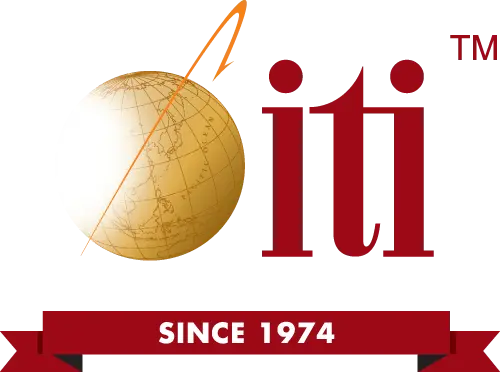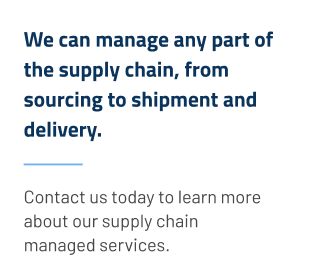
Managing inventory in an industrial manufacturing supply chain should be straightforward. If a manufacturer produces the right amount of product to keep up with end-user orders and has reasonable backup in storage, inventory should balance out perfectly. Of course, as with most things, the realities of managing inventory are not so simple in practice.
Instead of an idyllic equilibrium, inventory management is a perpetual balancing act between remote manufacturers, international logistics carriers, domestic distributors and highly discretionary customers. Some industries and product types fare better than others, but all require active management to avoid disruptions, stock-outs and margin erosion.
With the gravity of such risks, many businesses feel as if they’re held hostage by the volatility of their supply chain and inventory levels. Luckily, there are solutions, one of which is the topic of this post: vendor managed inventory, or VMI for short.
What Is Vendor Managed Inventory?
What do we mean by vendor managed Inventory? VMI is the practice of delegating and assigning responsibility for maintaining your product inventory to an upstream supplier. For example, instead of counting, ordering, stocking and monitoring an inventory of consumable parts in your business, you sign a contract with a VMI supplier that will perform all of these tasks for you.
In this agreement, the VMI supplier is responsible for making sure you have sufficient inventory on hand when you need it and will manage any supply issues on your behalf.
Key Targets of Vendor Managed Inventory
What key services make up a VMI program? When you engage a key supplier to manage inventory levels for your business, the vendor should provide service and technical insight that directly serve these five attributes:
- Inventory quantity. Vendors will keep close tabs on your inventory levels; accurately counting stock levels at your location as well as allocated pre-ship stock at their location (or at an upstream distributor’s location). Many vendors today use automated means to monitor quantities, which can also automate notifications and alerts when low or high quantity limits are reached.
- Inventory velocity. How fast inventory is consumed and replenished is referred to as its velocity, which describes the next major factor that vendors will manage for you. Most often, vendors will acquire detailed, frequent velocity data for each SKU in inventory, and use this to predict your exact movement rates and inventory needs.
- Inventory traceability. Compiling and archiving traceability records for inventoried components requires great effort, especially when such recordkeeping must be done to satisfy regulatory or internal quality management system requirements. VMI suppliers often perform this service as part of their procurement efforts, saving you time and energy.
- Inventory efficacy. An emerging benefit of VMI is having your supplier’s insight into how effective your inventory units perform, in the context of your order rates and costs. For example, if you purchase 5-packs of grinding discs and consume 20 packs a month, your vendor may suggest that purchasing 10-packs would be more effective for your use case, and less expensive at that.
- Inventory waste. Building on the above point, optimizing inventory efficacy also directly solves for waste, which a keen VMI supplier will consider in their management efforts. Packaging materials, unused components, over-stocks, oversized containers, delivery frequencies and time allocations are all contributors to waste that can be cut down by properly balancing inventory.
Putting Vendor Managed Inventory to Work
Most readers would agree that the above attributes are very desirable, but what’s the catch? It’s best to think of VMI as a value-added service on top of traditional vendor-buyer transactions. Buyers are exchanging a long-term purchasing commitment for outsourcing managerial resources to an external vendor.
In our experience, we’ve seen that this type of engagement comes with both positive and negative commercial implications that must be thoroughly considered beforehand.
Pros of Vendor Managed Inventory
- Improved resource utilization: By far, the largest benefit of VMI is rebalancing resource allocations to improve total operational efficiency.
- Consolidation of suppliers: Businesses tend to naturally acquire more and more vendors over time, and can find themselves coordinating orders from many more suppliers than they might need. Implementing a VMI program places a single distributor at the helm, allowing buyers to work with one point of contact.
- Normalized inventory levels and expenditures: Getting a grip on inventory levels through a VMI program helps reduce over- and under-ordering scenarios, as well as reactive emergency ordering. In turn, VMI provides predictable inventory levels and spends, keeping inventory right where it needs to be.
- Smoother Operations: VMI inherently seeks to normalize material movements, order frequencies and logistics traffic all in an effort to maximize profitability for the vendor. For this reason, vendors are motivated to help buyers smooth out their operations into a cyclic, predictable pattern.
- Increased competitive advantage: Once a business has proper VMI in place, it can better utilize its internal resources toward its own competitive concerns. In addition, optimizing procurement through VMI can improve associated workflows, such as speeding up production rates and decreasing work-in-progress holds, providing further competitive advantage.
Cons of Vendor Managed Inventory
- Potential cost creep: Vendors provide VMI as a service that of course has a cost. Many vendors will absorb this cost, but in some cases may add margin onto product prices to help cover the expense. Further, VMI suppliers may pass through cost increases that buyers cannot avoid due to the VMI contract in place.
- Contract obligations: VMI engagements almost always come with a commercial contract, specifically seeking to secure a long timeframe in which the vendor can expect your business. These contracts often include limitations and obligations such as order minimums, non-compete clauses and unfettered access to your storage facilities by the VMI representative. Such obligations can have cost and legal ramifications.
- Risk of bottlenecks: A single vendor can offload a great amount of work from your day, but can also become a single point of failure risk if they don’t perform as expected. In the event of a VMI supplier failure, a major bottleneck can be created awaiting inventory.
- Loss of flexibility: Both a pro and a con, VMI agreements tend to limit flexibility as a function of locking in product selections at competitive pricing. On the vendor’s side, the more repeatable and uniform a practice they can make managing your inventory, the more profitable it is for them. This might limit your flexibility in switching products, obtaining alternatives or even switching VMI suppliers entirely in the future.
- Missed opportunities: As an extension of lost flexibility, at times tactical opportunities may arise that buyers would not be able to capitalize on given the terms of their VMI agreement. This can include cost opportunities as well as unique benefits from different vendors.
Is VMI a Good Fit for You?
Vendor managed inventory can be a spectacular benefit for businesses tight on time, resources and expertise balancing both the supply and consumption sides of their inventory equation. Organizations should carefully weigh the pros and cons of VMI for their specific needs, and test multiple VMI suppliers to understand each vendor’s value.
When properly implemented with qualified, capable vendors, VMI can not only free you from inventory hostage situations, but can unlock incredible procurement benefits not available otherwise. We at ITI Manufacturing are always available to talk about supply chain management options. Contact us with your questions.






